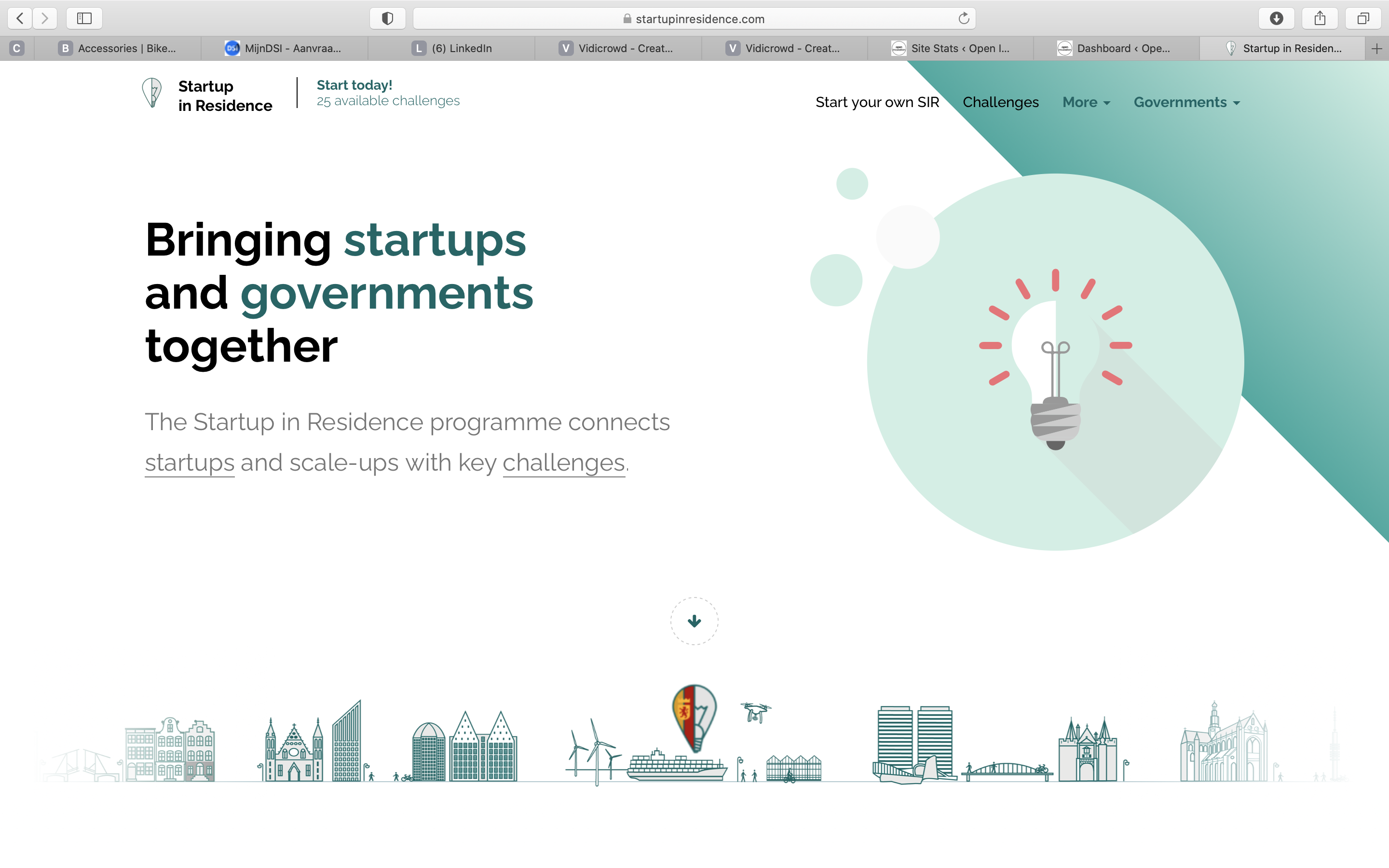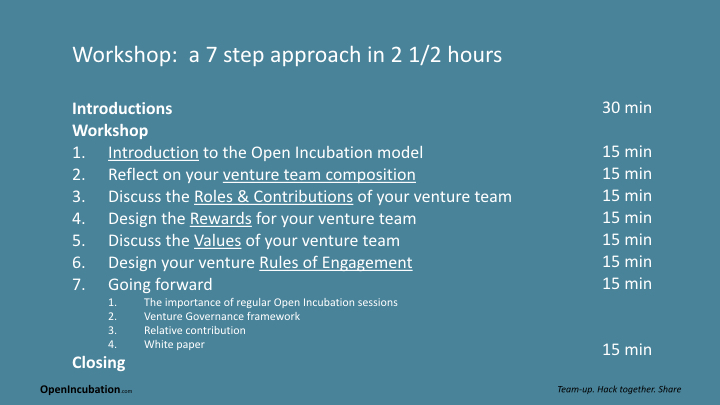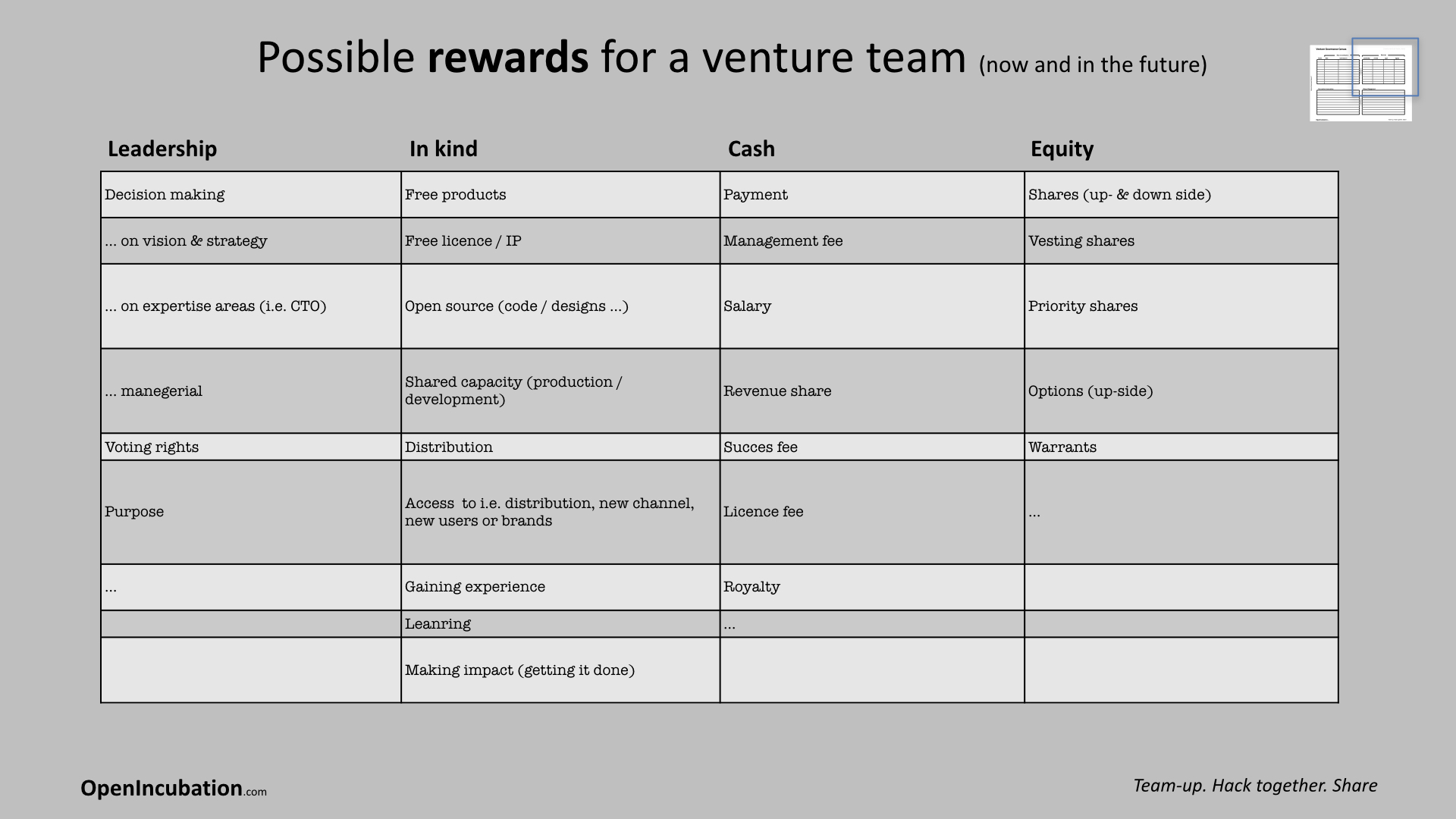Venture governance is well established for venture capital backed start-ups. In return for a financial investment, start-ups are required to implement the venture capital governance model. This model is optimised for value creation in a three to eight year period followed by an exit or IPO. Whereas the traditional venture capital governance model is designed for high-growth start-ups, a large majority of newly started ventures have not reached the inflection point to consider venture capital. Often these ventures do not fit to the venture capital model at all.
In the past decade, we have seen an explosion of venturing activities often referred to as the democratisation of venturing. With a lean and ‘try fast, fail early’ approach, most of the early stage venture teams are not incorporated as a legal entity, funded nor do they have a formalised venture governance. Why would founders incur the costs of incorporation and taking the effort of drafting shareholder agreements as long as there is nothing at stake? They are right about avoiding unnecessary costs. Yet, within weeks team members will start to ask questions about what’s in it for them.
Too late, founders, contributors and venture partners end-up having tough discussions on ambition, team commitment, IP ownership, equity split, salaries and leadership roles. If those questions are not addressed properly, a venture will face the risk of imploding team energy, eventually resulting in a break-up. The most heard reason about why early stage ventures fail is that the team members became frustrated about the lack of a fair venture governance model.
The good news is that I see an increasing number of venture teams who realise that a well designed venture governance model is critical to the succes of a venture. Yancey Strickler, co-founder and CEO Kickstarter, said in an interview with Wired Magazine that projects on Kickstarter “are often funding things on the bleeding edge, we’re tasked with thinking about how the future should be governed. We take this responsibility very seriously”.
I believe that venture governance is conditional for effective collaboration and a laser focussed energy in a venture team. However, the mistake most founders make is to mix up the incorporation of the legal entity with the opportunity to develop a venture governance model from day one. Open Incubation uses the term ‘rules of engagement’. On purpose, we do not seek to create a legally binding document. In an upstart situation, people team-up to hack together with the intention to share the benefits. Rather than a legal contract, venture teams need first a governance model that allows for transparency and flexibility based on certain shared values. This way the venture team will know how to engage and what to expect from each others roles, contributions and rewards.
We have developed Open Incubation over the past five years working with early stage ventures. Ventures which often started as a project with an ad-hoc team but eventually became a start-up dealing with the challenges that come with pivots and scaling. We learned that in those situations the rules of engagement agreed by the team help to solve tensions on expected roles, decision making and imbalances between contributions and rewards. Not to forget the hardest challenge, a change in the composition of the venture team. New team members may join and others may leave. A well designed venture governance model accommodates the venture team to deal with those situations in a fair, transparent and pragmatic manner.





